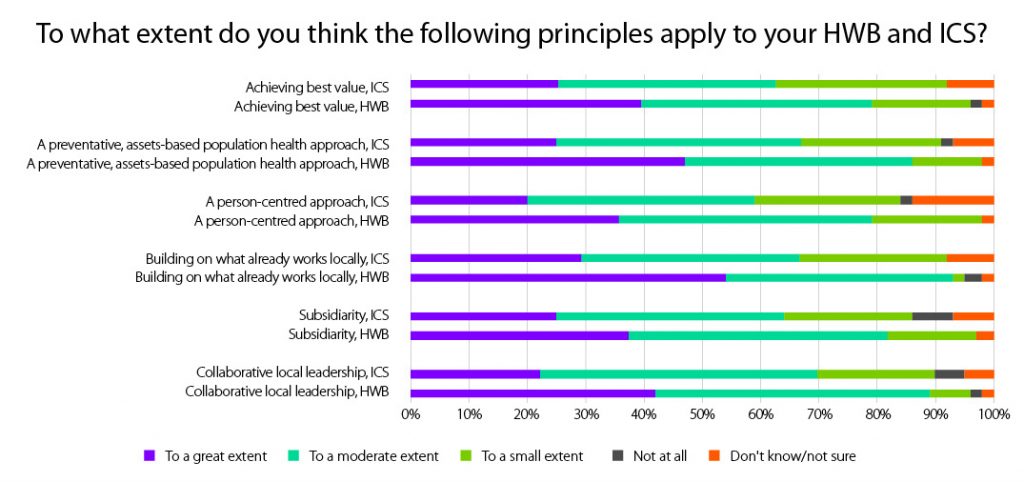Health and wellbeing boards are key to delivering integrated care locally.
Colleagues will be aware of the rapid development of the 42 ‘integrated care systems’ in England, which will take over the responsibilities of clinical commissioning groups from April 2022 at the earliest (subject to legislation). But while work is happening at system level, it is important for us all to keep a sharp focus on health and wellbeing boards (HWBs) as the place-based leaders of health and wellbeing.
The LGA undertook a national survey of HWBs in the autumn to give a snapshot of the extent to which integrated care systems (ICSs) and HWBs are working together. We will be publishing a fuller summary early this year, but, in the meantime, here are some headlines.
There are promising signs that HWB and ICS plans are aligned in setting the high-level vision for improving population health needs. But there are also concerns that ICSs could be doing far more to involve HWBs in shaping their day-to-day priorities – for example, investment plans.
Around 70 per cent of respondents to the survey said their HWB:
- had effective working relationships and high levels of trust with their ICS, to a ‘great’ or ‘moderate’ extent
- was playing an active role within the ICS to underpin delivery of place-based partnerships
- was working effectively to align plans with the local ICS.
Just more than a third felt their HWB was playing an active role within the ICS in shaping investment plans. In areas where the HWB shares an ICS boundary with other HWBs, less than 40 per cent felt there were effective working relationships between them, but almost half did report that effective partnership working was happening ‘to a small extent’.
In terms of the six principles underpinning the drive for integration, there was a marked difference in perceived application of them locally across the HWB and ICS – see diagram, below. These principles – achieving best value, taking a preventative assets-based population health approach, a person-centred approach, building on what already works locally, subsidiarity, and collaborative local leadership – were developed jointly by the LGA, the NHS Confederation, NHS Providers, the Association of Directors of Adult Social Services, and the Association of Directors of Public Health.
There’s clearly still more to do to ensure HWBs and ICSs are not just working to the same end – better health and wellbeing outcomes for their communities – but that they also have a shared understanding of the foundations of effective integrated care.
The survey responses will provide a good evidence base for our response to the integration white paper, expected early in 2022. In the meantime, we will continue to work with the Government, NHS England and our partners to support local clinical, professional, political and community leaders, at system and place level, to work effectively together to drive place-based and person-centred care and support.
